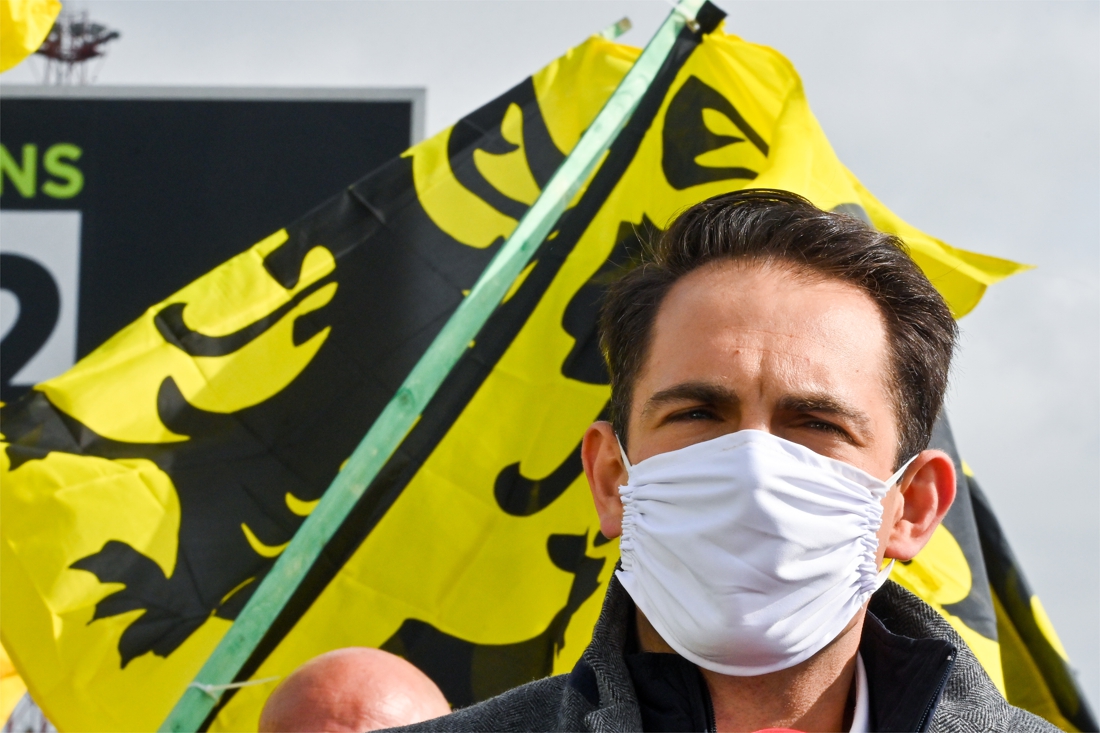If there were elections now, Vlaams Belang would still be the largest party in Flanders. The party, together with sp.a, is the only one that would do better than in the previous elections, according to a poll by The last news, VTM News, RTL in The evening.
According to the poll, Vlaams Belang currently stands at 27.1 percent. That is more than 9 percentage points more than in the elections. N-VA, the other major opposition party, is again doing slightly better than in the previous poll at 22.2 percent, but is still below its election result (25.5 percent).
READ ALSO. Tom Van Greeks (Vlaams Belang): “I hope we can work together with N-VA”
Sp.a. The socialists convince 13.7 percent of the voters. That is a significant gain compared to the elections, when the party was just above 10 percent. Open VLD and CD&V are now losing and fluctuating between 10 and 11 percent. Green drops to 7.6 percent, more than 2 percentage points below the election result.
Most popular politicians
The cards of the most popular politicians have been thoroughly shuffled now that there is a new federal government. The most popular politician in Flanders is now Prime Minister Alexander De Croo. The Open VLD member knocks N-VA chairman and Antwerp mayor Bart De Wever from the throne. This immediately falls outside the top three, because De Croo is followed by Federal Minister of Health Frank Vandenbroucke (sp.a) and spa.a chairman Conner Rousseau.
De Croo is also the second most popular in Wallonia, after its predecessor at the head of the federal government, Sophie Wilmès (MR).
Wallonia
In Wallonia, the PS remains the largest party (21.1 percent), ahead of MR (19.2 pc) and PTB (18.9 pc). In Brussels, Ecolo would remain the largest party with 19.8 percent, ahead of the PS (19.1 pc). According to the poll, the N-VA is the largest Flemish party in Brussels.
The poll was conducted in the first week of October, just after the new federal government was sworn in. It was an online survey by Ipsos among 2,595 Belgians aged 18 and older. The maximum margin of error is 3.1 percent in Flanders and Wallonia and 4 percent in Brussels.
– .

